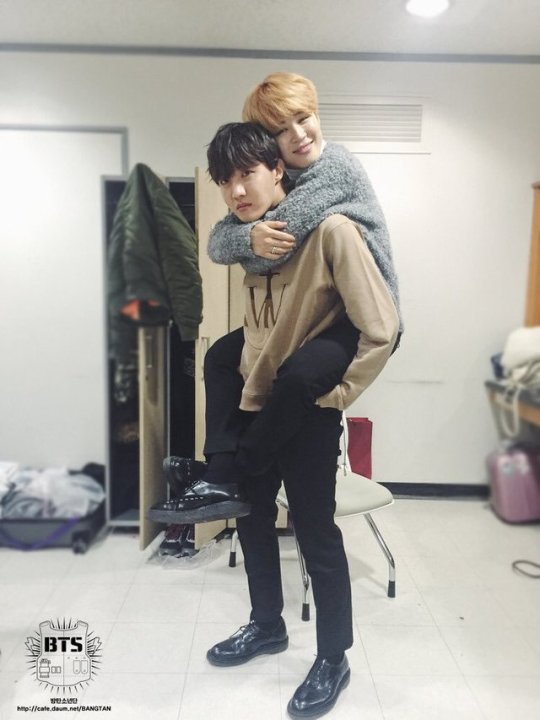Text
terrace house - so calm so zen
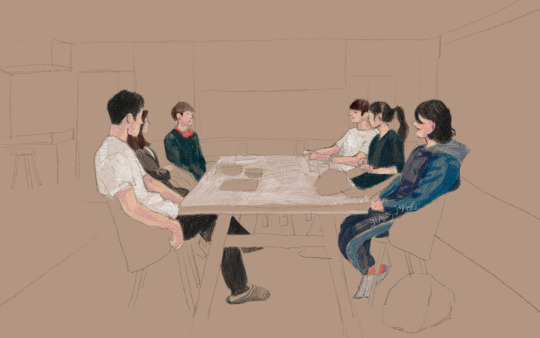
I’ve been watching Terrace House: Opening New Doors on Netflix. And it’s just so relaxing. The tranquil setting of a Japanese town, the beautifully designed house. I’ve never wanted to live in another country more 😍
*trying a new style of art, negative space + minimalism
55 notes
·
View notes
Text
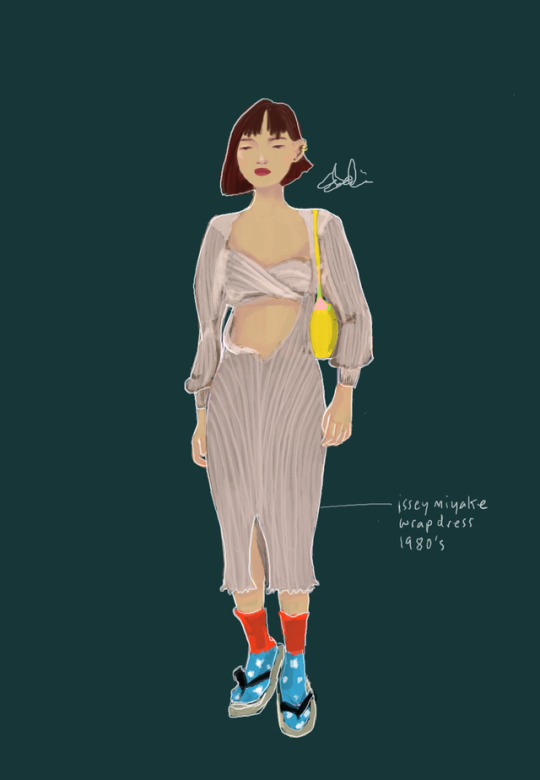
Clothes I wish I wore #01
Drawy tings
#illustration#digitalart#fashion#japanese#isseymiyake#drawing#artblr#digitalpainting#dress#mine#drawytings#avantgarde#avantgardefashion
15 notes
·
View notes
Text
0kAy ngl lowkey a M00d tho 💜💜💜
I want #kim taehyung to stomp on me.
96K notes
·
View notes
Text
Chinese Internet Speak/Slang: HelloTalk (phrases by natives)
In my last post about hello talk HERE
I discussed my experience with the app, all the useful phrases I had collected. From native speakers of the Chinese language. So I thought i’d compile another list, this time focusing on vocabulary around what the young people these days are using to text online, or say to each other!

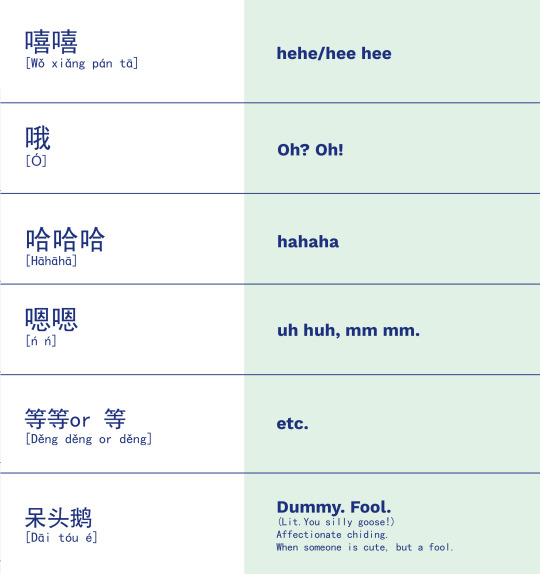
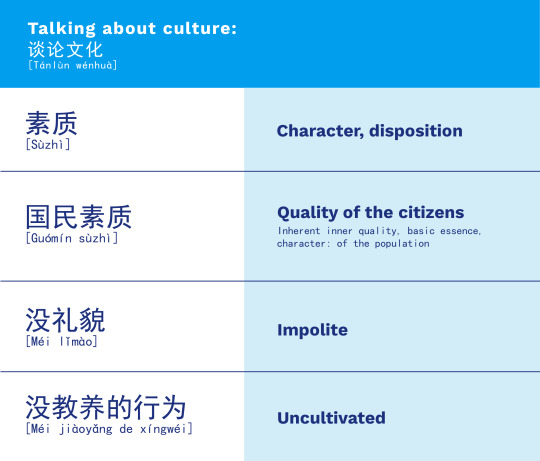
#learnchinese#hello talk#hellotalk#chinese vocab#chinese phrases#chinese sentences#native speaker#chinese studyblr#chinese langblr#chinese study notes#chinese vocabulary
292 notes
·
View notes
Text
Hello! This is all the Chinese learning content i’ve created so far! I hope you are all learning well and enjoying your language journeys!
❤️❤️❤️❤️❤️❤️❤️
CHINESE MASTERLIST!
*for future reference the masterlist link should be under my profile pic on my homepage!
FLASHCARDS
C-SERIES INTEGRATED CONTEXT VOCAB
01_10 Flashcards
02_16 Flashcards
03_18 Flashcards
04_18 Flashcards
05_17 Flashcards
06_15 Flashcards
07_18 Flashcards
RADICAL VOCAB
01_General Vocab
02_Colours
03_Valentine’s Day
HELLO TALK - Real life Chinese Conversations with Native Speakers
Part O1
Work, Continuing a conversation, Clarifying questions, Language ability, Getting ready in the morning
OTHER VOCAB
EMOTIONS
Emotions vocab list (w GIFS)
APPEARANCE
What type of boys do you like?
What type of girls do you like?
CHINESE PARTICLES
The three DE’s
MISCELLANEOUS VOCAB
01_My Mr. Mermaid + Body Parts
02_My Diary Phrases
03_My Mr. Mermaid + Body Parts PT2
04_My Mr.Mermaid ep 2 + 3
05_My Mr. Mermaid ep 3 + Chinese Pod describing drinks
06_PETS (describing animals/pets)
07_My Mr. Mermaid ep 4 + Home vocab
08_My Mr. Mermaid ep 4. cont
Sentence Order
Basic sentence order
Time/place word order
Test Yourself:
C-SERIES vocab lists 1-5
#learnchinese#chinese studyblr#chinese langblr#chinese study notes#chinese vocab#chinese vocabulary#chinese grammar#masterlist#chinese masterlist#self study
442 notes
·
View notes
Text
All the Korean Content i’ve made so far :) Thank you for all your love for my posts! I hope you are all learning well!! 💜💜💜💜💜💜💜
(7 hearts for all the 7 members of BTS ㅋㅋㅋㅋㅋㅋ)
KOREAN MASTERLIST!
I’ve gotten a couple messages asking for a masterlist! And for the sake of easy access/organisation: here it is!
*for future reference the masterlist link should be under my profile pic on my homepage!
KOREAN LESSONS
main series lessons:
Greetings/Basics
L1_Hello & Thankyou
L2_Yes & No
L3_Goodbye/See you!
L4_Sorry
L4.01_Excuse me!
L12_Sayings to start and end a meal
Identifying objects
L5_What is it? It is…(to be)
L6_What is this? This is…
L7_Descriptive Modifiers: This, That, The
Topic + Subject Markers
L9_Topic & Subject markers
L9.01_Topic marker nuances (with Jin)
L9.02_Topic marker nuances (with Namjoon)
L9.03_Subject marker nuances
Conversational: affirmations/negations/asking
L8_NOT (it’s not, that’s not)
L10_To HAVE, to HAVE NOT
L11_To give, asking for something
L13_To WANT
Tenses
L14_Present Tense
L16_Past Tense
Work/Occupations
L15_What work do you do?
Locations/Time
L17_Where?
L18_Location marking particles
L19_When
KOREAN VOCAB
K-DRAMA VOCAB
PART ONE
PART TWO
K-SERIES: TOPIK flashcard vocab (integrated context method)
part one
Verbs with BTS:
part one
part two
Korean body parts with Taehyung:
part one
part two
part three
Test yourself reviews:
Lessons 1-12
Lessons 13-19
K-DRAMA Vocab
*Will be updated regularly!
#TTMIKBeginner#learn korean#korean studyblr#korean studyblog#korean langblr#korean grammar#korean vocab#korean study notes#korean vocabulary#self study#masterlist#korean masterlist
492 notes
·
View notes
Text
Hello Talk Vocab Test Translate:
Talking about jobs/work
1. What kind of work do you do?
2. I am not a teacher, I’m a retoucher
3. Can we chat every night?
4. Okay! Let’s help each other!
5. Your name sounds very nice
6. hahaha
7. uh huh
Questions you can ask: when you don’t understand
1. I don’t quite understand this sentence
2. Can you type it out?
3. So I can follow?
4. I have many questions, I have a lot of questions
5. For example this sentence
Is your English/Chinese good or not?
1. Proficiency (language ability)
2. Vocabulary
3. Beginner Vocabulary
4. Intermediate Vocabulary
5. Advanced Vocabulary
6. To learn a word
7. To learn a phrase
Getting ready in the morning
1. I (still) haven’t had (eaten) breakfast yet
2. I am getting ready to go to work, are you?
3. I hope you have a good day at work
4. I hope you have a good day off! (off day)
BONUS SENTENCES:
Asking your language partner to say things in English/Chinese
1. Please say this sentence in English/Chinese
Setting a timeframe for your language exchange
1. Let’s talk for an hour!
2. Let’s talk for half an hour!
3. I don’t have much time
4. I have to go to sleep now
12 notes
·
View notes
Text
HELLO TALK: VOCAB + My Experience
So I was sick of being stuck behind my computer, learning and writing vocab, but not being able to talk to anyone in Chinese. I was looking around and thought i’d try this app called HELLO TALK. I’ve had it for two days so far!
Essentially it connects you with someone across the world who has your target language in their mother tongue. And ideally you’d have their target language as your mother tongue. And the language exchange begins!
Ofc there’s a bit of filtering to do, with people who aren’t willing to help you with your language and only want to speak in English. But once you find someone who has the same language learning goals as you it’s a matter of jumping straight into it. Try texting them in a mix of english/chinese and you can send back and forth voice memos to ask questions and improve eachother’s pronunciation :)
Here is some key vocab points and some of the things I got asked and discussed from my language exchange with a guy from Beijing and a girl from Hainan and many others :)
Even though there is a language translate function, it runs out after 15 goes if you have a free account. So I found myself forced to put things into google translate and look up things in the PLECO dictionary. Most, if not all of these sentences came from the native Chinese speakers on the app! So this is Chinese vocab in its most natural expression!
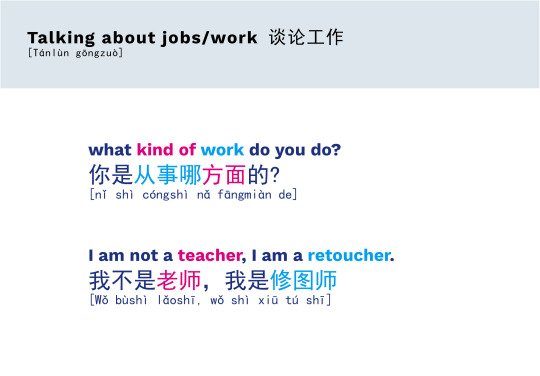
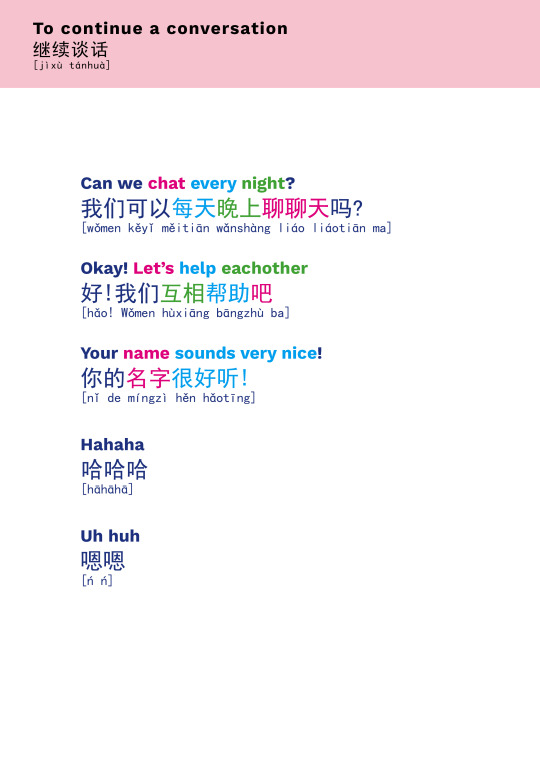
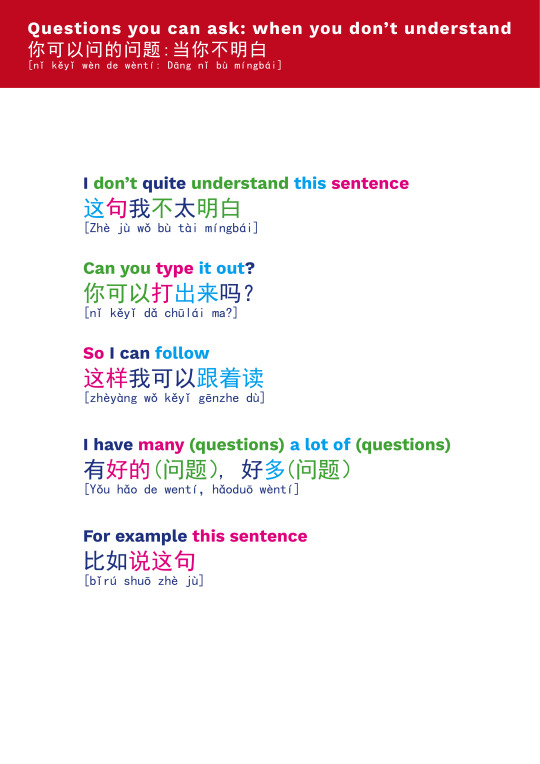


BONUS SENTENCES:
Asking your language partner to say things in English/Chinese
1. Please say this sentence in English/Chinese
请用英文/中文说这句话
Qǐng yòng yīngwén/zhōngwén shuō zhè jù huà
Setting a timeframe for your language exchange
1. Let’s talk for an hour!
一小时久 我们说吧!
Yī xiǎoshí jiǔ wǒmen shuō ba!
久: particle for duration of time
2. Let’s talk for half an hour!
半个小时久,让我们聊聊吧!
Bàn gè xiǎoshí jiǔ, ràng wǒmen liáo liáo ba!
3. I don’t have much time
我没有太多时间
Wǒ méiyǒu tài duō shíjiān
4. I have to go to sleep now
我现在必须去睡觉了
Wǒ xiànzài bìxū qù shuìjiàole
#learn chinese#hello talk#hellotalk#chinese vocab#chinese phrases#chinese sentences#native speaker#chinese studyblr#chinese langblr#chinese study notes#chinese vocabulary
541 notes
·
View notes
Text
Valentine’s Day: RADICAL Vocab Flashcards (10 cards)
Radical Vocabulary Valentines edition! Taking a slightly different approach with the words that have more than one character.
HOP to the base of the post for a “how-to” use the flashcards (they are a little out of the box)
Quick Guide:
Word meaning in CAPITALS, & literal character meanings in bold.
Literal character meanings in CAPITALS, and radical components in BOLD CAPITALS.

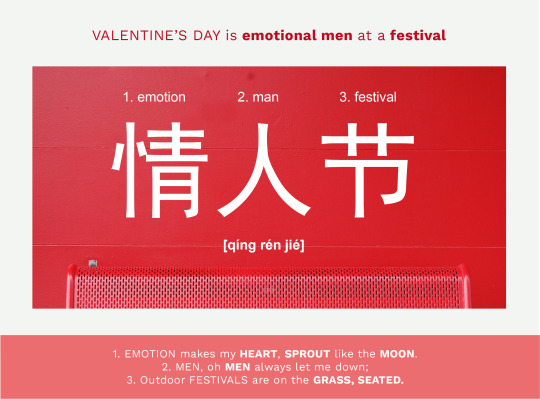


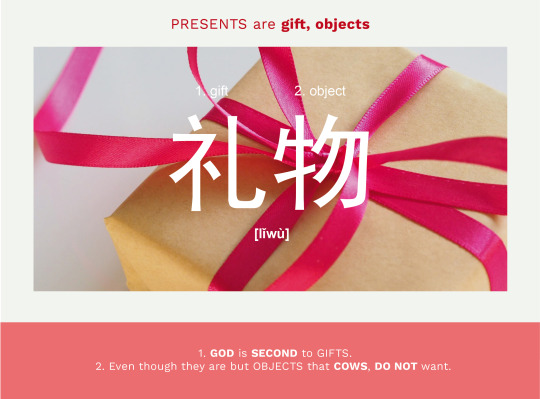


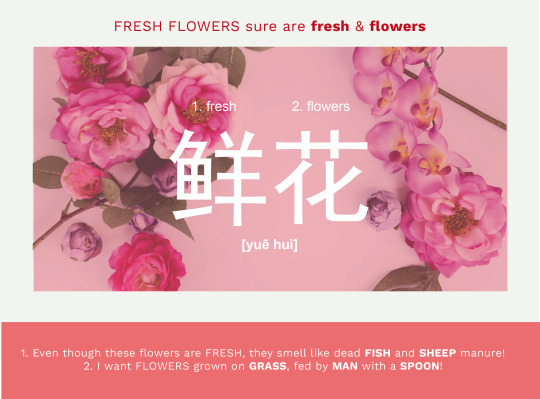


A little how-to on how to read/use the flashcards, as they are a little different:

WORD + CHARACTER MEANING
The top sentence approaches the word from a character based perspective. Breaking down each word into the individual characters and their root meanings. (Good if you already know these characters).
Word meaning in CAPITALS, & character meanings in bold
RADICAL COMPONENTS within characters
The bottom sentences, reference the numbered characters in the image. They tackle the word from a radical approach. These sentences are used for primarily memorising the stroke composition within each character.
Individual character meaning in CAPITALS, and radicals in BOLD CAPITALS.
I hope it makes sense, i feel like it may be a little convoluted but room for improvement!
Let me know what you think.
Check out my other Radical Colour Flashcards: HERE
and vocab pack 01 HERE
#learnchinese#learn chinese#chinese radicals#chinese studyblr#chinese langblr#chinesestudyblr#chineselangblr#chinese study blog#chinese vocab#valentines day#chinese study notes#radical series
90 notes
·
View notes
Text
六書:The Six Standards For Categorizing Hanzi
As you have hopefully noticed, hanzi don’t all seem to work the same way, and during the Han Dynasty six categories were designated for describing the “logic” of a character. It’s not something that comes up a whole lot, but it’s interesting and handy for explaining to folks that it’s not all “lil pictures” ఠ ͟ಠ
象形 xiàngxíng: pictograms, one’s like 火 or 馬. These arose from people using drawings to help remember oral stories, and then those drawings turning into more simplified and consistent symbols.
指事 zhǐ shì: ideograms, things that “demonstrate” a concept. so like 上 and 下
形声 xíngshēng: an ideogram + a phonetic component. so you may not have encountered 氿 before, but hm it’s got water (三点水) and 九—it’s pronounced jiǔ & means “bubble up” as in spring water
会意 huìyì: joint ideogram, so two “meaningful” components that help make a new meaning. A 人 man with a 戈 spear, 伐 attack! (tho more literary now)
related thought: this is also the pattern of development for hieroglyphics and Sumerian writing, though as these got used for other languages eg Akkadian things would get used for their semantic meaning and get new phonetic readings that could then be remixed again, or used purely phonetically, resulting in a mixed system kind of like Japanese but if the kana looked more like kanji. (if yr into it I cannot recommend this book enough) So also no, emoji are not like hieroglyphics.
转注 zhuǎnzhù: transfer characters, these are weird and not well understood. it seems to be characters that sound different but contain a similar part and mean the same thing, so 爸 and 父. The classical ones given are 考 老 so maybe cognates that separated but??
假借 jiǎjiè: loan characters. This includes old stuff like 来 which meant wheat but was pronounced lái anyway, and now if you want to talk about wheat you have to add the grass radical 莱, heh. This is also how names and foreign things are transliterated
So that’s how hanzi work! I think in ways there are overlap but these are the technical distinctions. For example “beer” used to be transliterated as 皮酒, aka skin alcohol and that’s gross, so it was changed it to 啤酒, with the “pi” that’s also in 埤 and 脾 but the 口 mouth radical since it’s phonetic, like 啊, 哎, and 哦. Otherwise new characters are exceedingly rare and mostly only for elements, like oxygen is 氧, and has the 气 radical like other gases but the 羊 for pronunciation. I feel like you could also make a contemporary pseudocategory for internet punning or something, like 囧 being used as a face and all the censorship work-arounds.
There’s soOoO much to talk about always but you can google around, here’s a Baidu article that has the old school classification poem, here’s an english rundown with more examples and a powerpoint. and of course wiki. (o˘◡˘o) 谢谢你们来我的TED talk
535 notes
·
View notes
Text
Colours: RADICAL Vocab Flashcards
Thought i’d try a slightly different approach, particularly for the nouns to remember them. By breaking down individual meanings of the radicals within each character + pairing with a context driving trigger sentence. With Chinese, the radicals tell a story of how the word came to be, so perhaps looking at Chinese characters through that approach will encourage another level of long-term memory.
**Radical meanings are in bold + the vocabulary is CAPITALISED

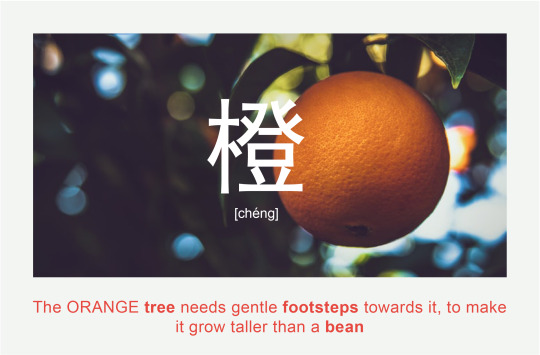
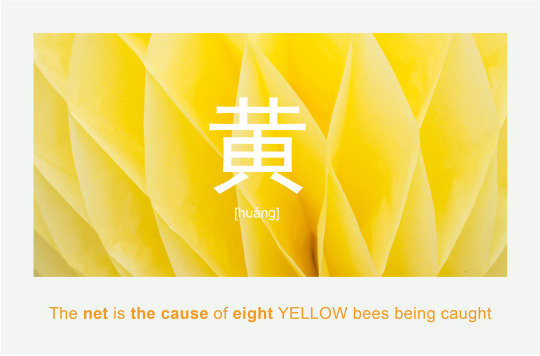




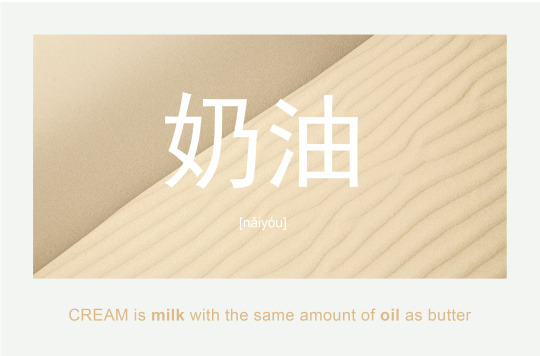
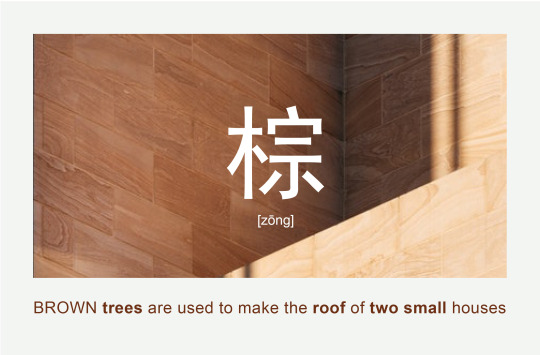
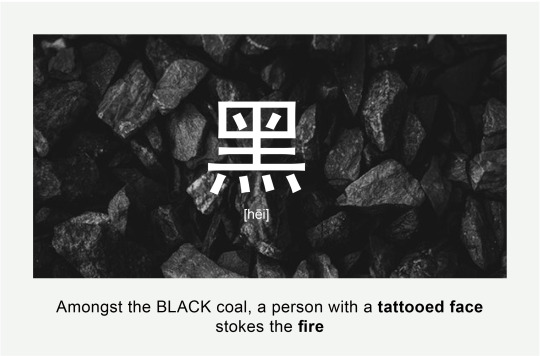
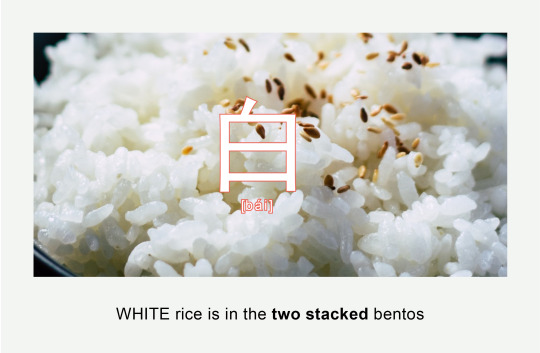

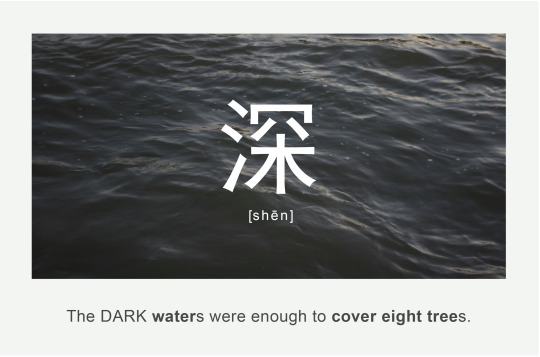
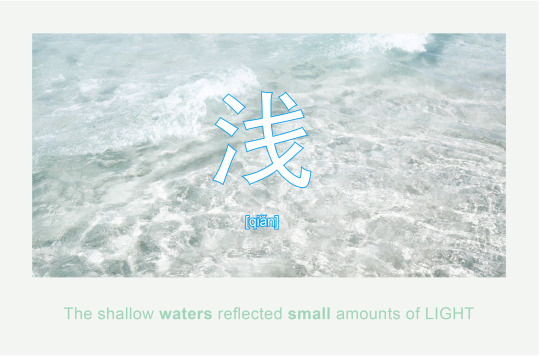
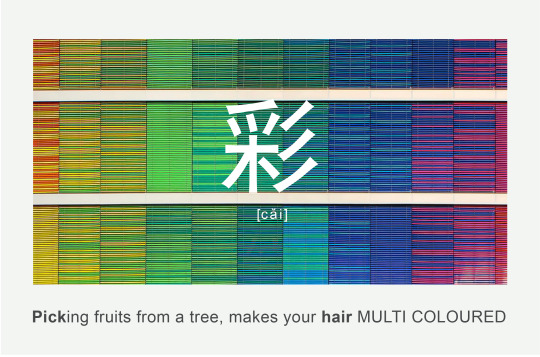
#learnchinese#learn chinese#chinese colours#chinese colors#chinese vocab#chinese studyblr#language#languages#chinese langblr#chinese study blog#chinese study notes#colors#chinese vocabulary#radical series
659 notes
·
View notes
Text
01 RADICAL Vocab Flashcards
Thought i’d try a slightly different approach, particularly for the nouns to remember them. By breaking down individual meanings of the radicals within each character + pairing with a context driving trigger sentence. With Chinese, the radicals tell a story of how the word came to be, so perhaps looking at Chinese characters through that approach will encourage another level of long-term memory.
**Radical meanings are in bold + the vocabulary is CAPITALISED


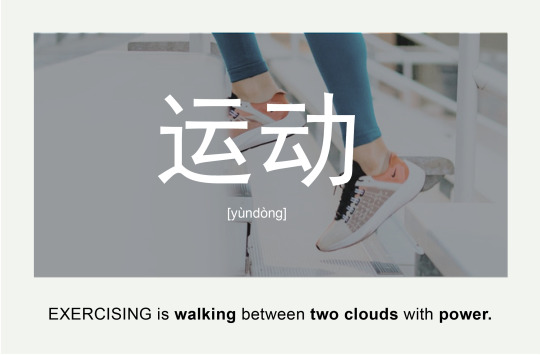

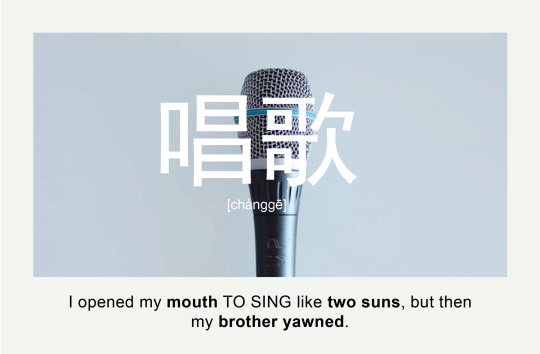

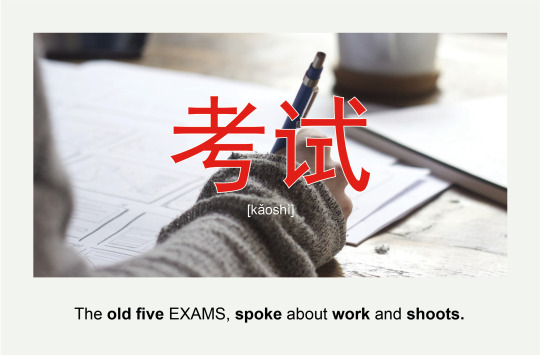



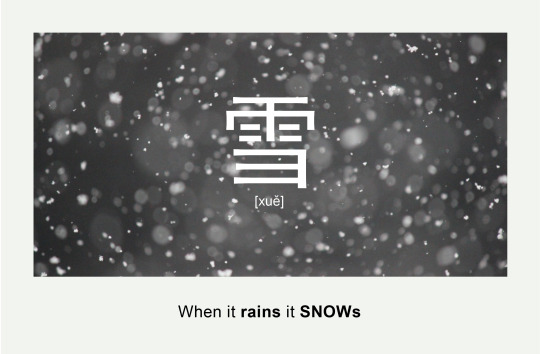
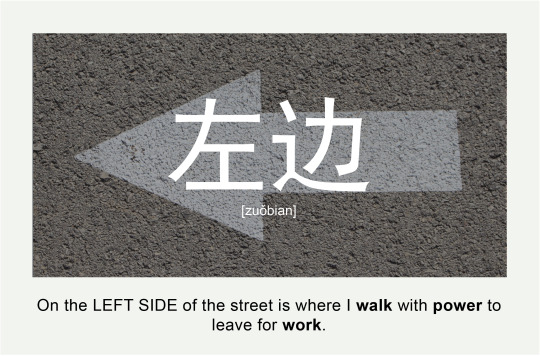

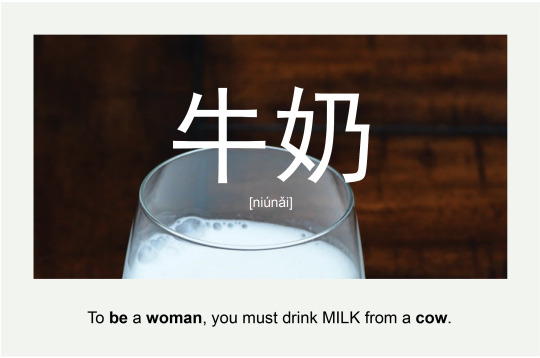
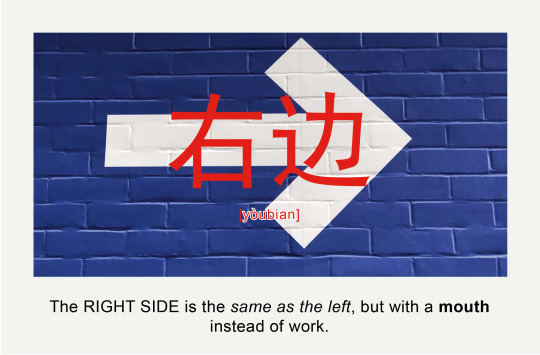


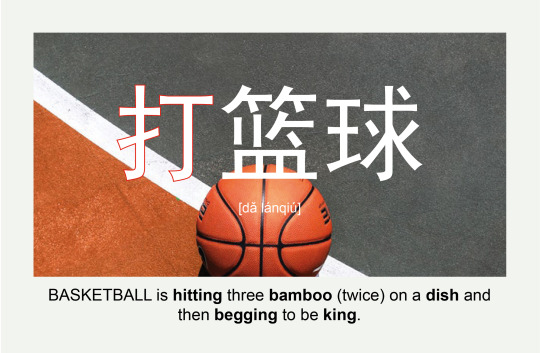
#learnchinese#learn chinese#chinese vocab#radical series#chinese vocabulary#chinese studyblr#chinese langblr#languages#language#chinese study#chinese study notes#chinese radicals#chinese hsk#language study#chinese study blog
34 notes
·
View notes
Text
07 C-SERIES integrated context vocab. (18 Flashcards)
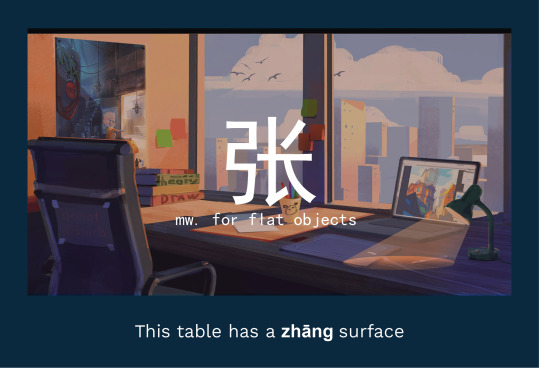
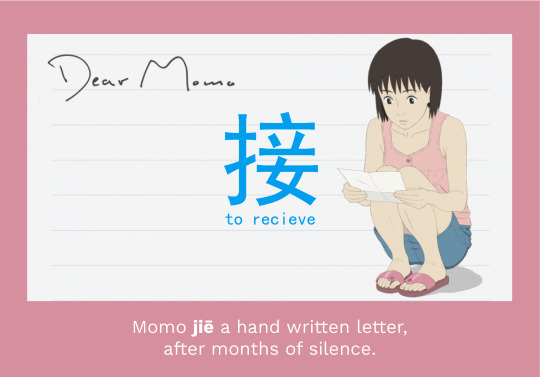

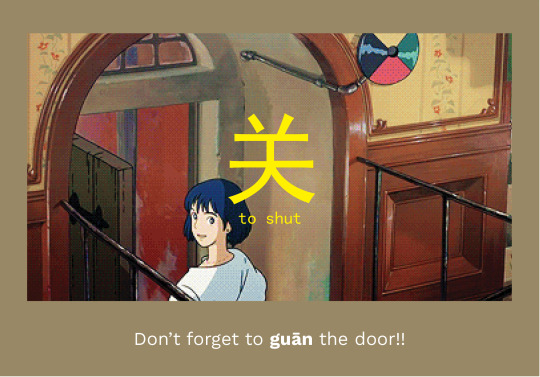
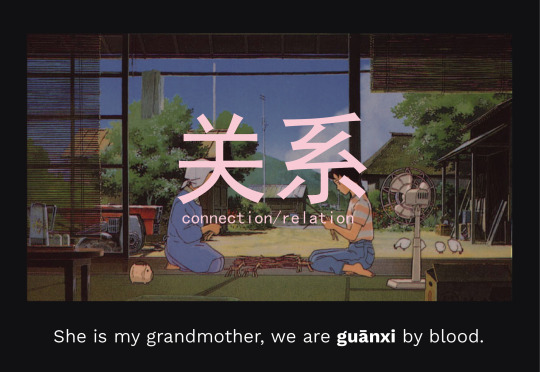
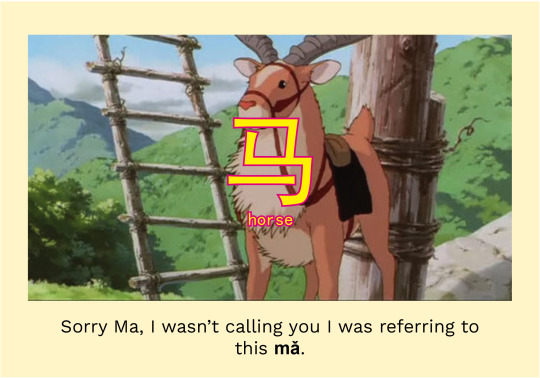
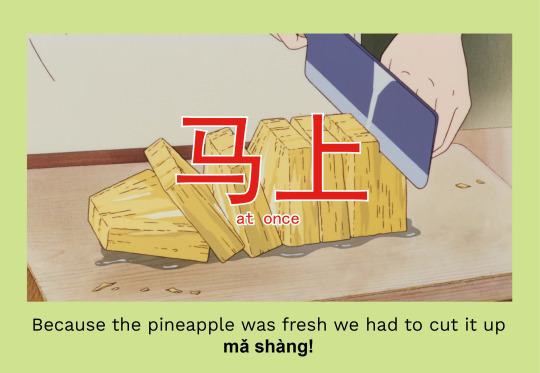



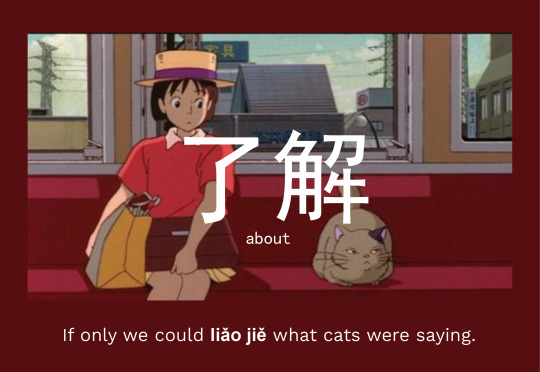




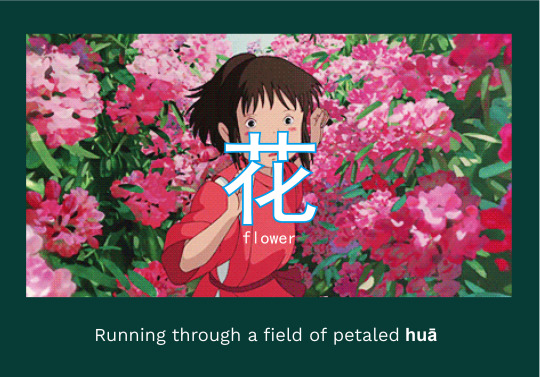

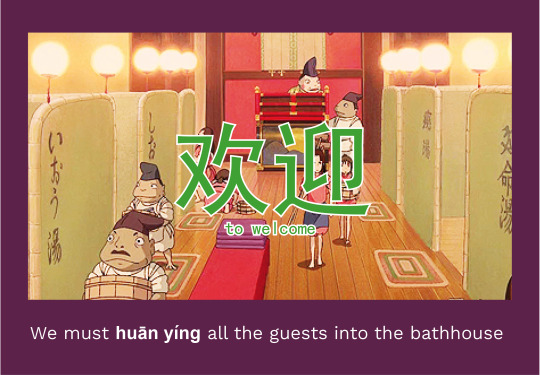
See previous C-SERIES flashcards and other vocab lists in my Chinese Masterlist HERE
1st flashcard image cred: by sheer-madness @deviantart
#learn chinese#learnchinese#chinese vocab#chinese flashcards#language#languages#studyblr#langblr#chinese studyblr#chinese langblr#chinese characters#hsk#chinese hsk#c-series#studio ghibli
188 notes
·
View notes
Text
Test yourself: K-Drama Vocab
For vocab lists HERE and HERE
Part ONE
a. don’t go
b. promise me
c. I like you
d. I love you
e. are you hungry?
f. i’m happy
g. are you okay?
h. don’t worry
i. i miss you
j. sleep well
k. what’s wrong?
l. boyfriend, girlfriend
m. will you marry me?
n. senior, junior
o. one-sided love
p. love triangle
q. sorry!
r. let’s break up
s. please (desperate)
t. eonni, hyeong, oppa, nuna
Part ONE
a. are you kidding me?
b. by any chance
c. call
d. don’t lie!
e. don’t misunderstand
f. like this?
g. oh yeah!
h. sure, sure
i. wait for a bit
j. i don’t know
k. what are you looking at?
l. what sound is this?
m. how? what to doo?
n. don’t do that!
o. I said don’t do that!
p. i’ll leave first
q. what in the world?
r. really? really?? really?! (three variations)
s. it can’t be
t. apologise! are you crazy? crazy guy.
u. what are you going to do?
v. buy this for me
q. let’s just be friends
r. it’s a lie. don’t lie.
s. do you want to die?
#learn korean#test yourself#korean studyblr#korean study blog#korean langblr#languages#korean#TTMIKBeginner
18 notes
·
View notes
Text
KDRAMA VOCAB 2.0 (25 Flashcards):
So I came across another article of the top Korean Drama Words & Phrases and thought i’d make another set of flashcards!
Part One: HERE
가자!
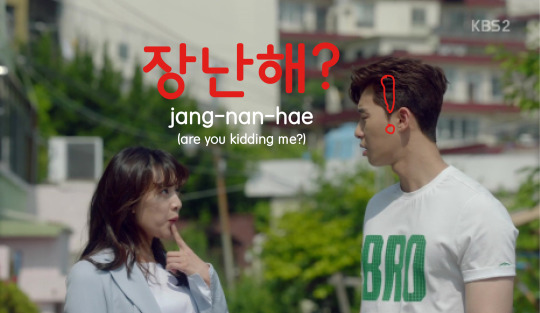
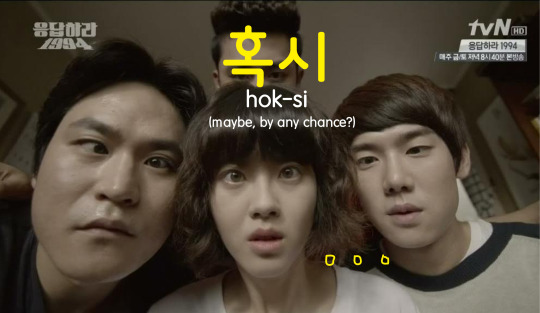

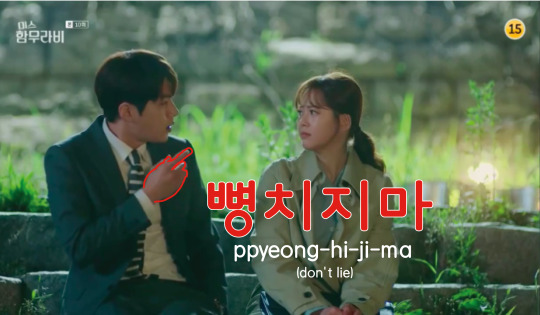
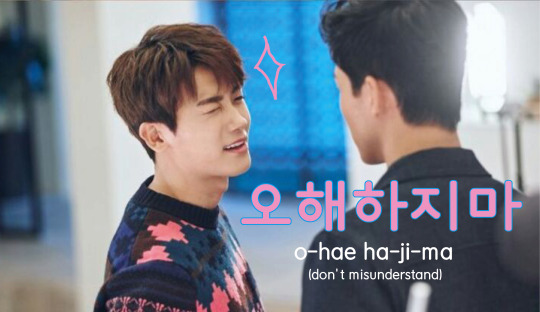



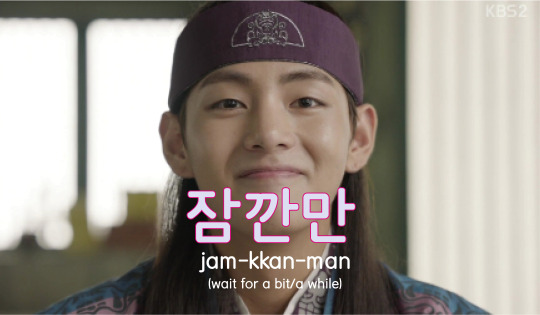
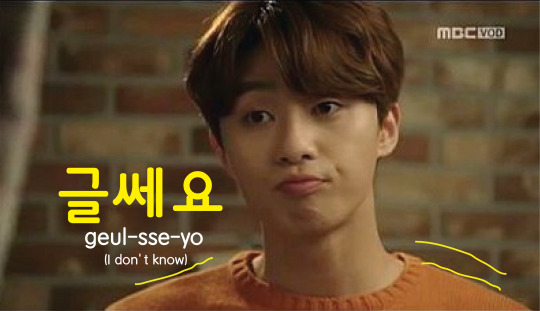


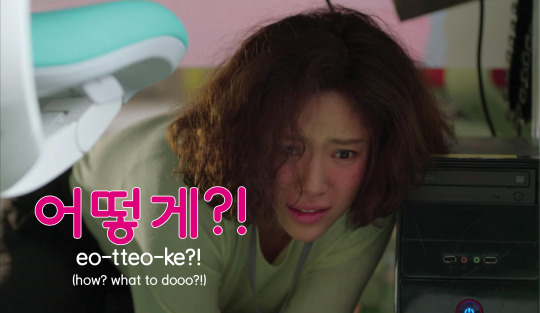




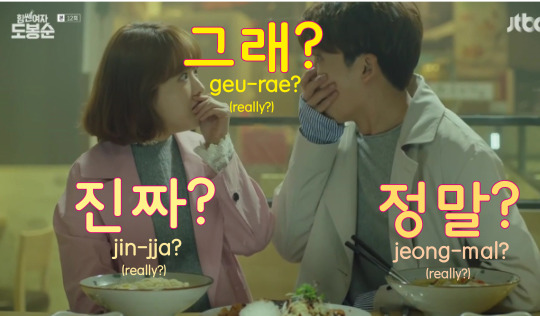
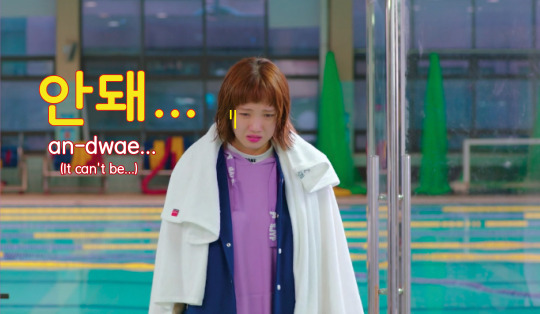






ahh lol what a nice ending to the study pack.
I hope you guys like these as much as the last set and continue to learn well and in a fun way :) I know I have fun making and learning from these!
#TTMIKBeginner#90daykorean#learn korean#learnkorean#languages#korean#korean studyblr#korean langblr#korean study notes#koreanstudynotes#korean vocab#koreanstudyblog#kdrama#k-drama#korean flashcards#kim bok joo#strong girl bong soon#reply 1994#she was pretty#shopping king louie#heirs#kill me heal me#welcome to waikiki#hwarang#whats wrong with secretary kim#secretary kim#suspicious partners#are you human too#fight my way#kim taehyung
477 notes
·
View notes
